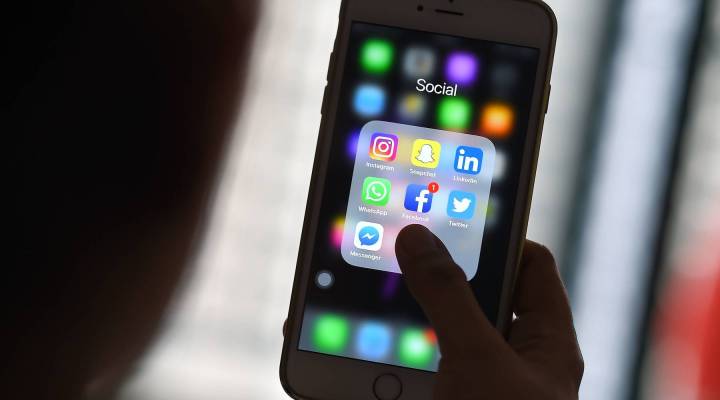
Loneliness is an epidemic — social media may not always help
Loneliness is an epidemic — social media may not always help

The “loneliness epidemic” — that’s the way U.S. Surgeon General Vivek Murthy has described a decades-long rise in Americans feeling socially isolated, bereft of the interpersonal connections they want and need.
That may seem strange, in light of all the ways we now have to connect electronically, from email and Facebook to Discord, Instagram and TikTok.
Approximately two out of three adults in America suffer from loneliness, according to a recent report from health insurer Cigna.
“Loneliness does have really strong deleterious consequences for the individual in terms of health effects,” said psychologist Matt Johnson, who’s on the teaching faculty at Hult International Business School in Boston and has written about loneliness for Psychology Today. “It’s strongly correlated with stress-related diseases, heart disease, anxiety, risk for stroke or heart attack.”
And he pointed out: increasing loneliness also correlates with the proliferation of social media platforms worldwide. “When this unmet social need isn’t met in your organic social environment, the market converges upon this,” said Johnson. “We see the rise of social media happening around the same time as this loneliness epidemic. There are these market solutions effectively for loneliness.”
Johnson said that social media platforms can sometimes mitigate loneliness — if they’re used to foster real-life social connections, “where you’re actually getting in touch, where you’re keeping in touch with one another’s lives.”
That’s the kind of social network that 51-year-old Deena Hindi has been trying to build for her 84-year-old mother in Queens, New York.
Hindi’s father died from Alzheimer’s Disease several years ago. Her mother was left living alone next-door to Hindi, with few friends.
Hindi figured: “There’s got to be a lot of lonely people that are widows. So that’s why I created a Meetup group, to see if I could get people together.”
A bunch of older women found Hindi’s Meetup group online. They now go out regularly in-person, to schmooze at neighborhood restaurants. “And you know what?” said Hindi, “the women in the group are very appreciative. Because they’re seniors, a lot don’t have any family. Even if this is not for a long-lasting friendship, it’s just a good time.”
Psychologist Matt Johnson pointed out that spending time on some popular social media apps isn’t likely to assuage loneliness — rather, it can do the opposite.
“More and more people, especially younger people, are engaging in the more follower-type of social media,” Johnson said, “where you’re engaging with people with massive followings, and you’re looking at their TikTok videos, their tweets, their Instagram content. You don’t know them personally, you’ll probably never meet them in real life: Not really social connection.”
Johnson noted that there are also commercial products and services aimed at lonely people as a target demographic. “There’s Rent-a-Friend, for example, where it’s a dual-sided platform, designed to be Platonic,” said Johnson. “They‘ll go and grab a drink with you, attend an event or a party with you, and they are a companion that you pay for.” There are also, he said, “human-sized robots, where people are engaging with them — for companionship as well as for romantic pursuits.”
There are ways that employers can help combat the loneliness epidemic, according to Anne Bowers, who researches the workplace, mental health and productivity at Cigna.
Bowers said employers can try to reduce the deluge of 24-7 online work many employees deal with, giving them more opportunity to strengthen connections with family, friends and community. “A healthy work-life balance for employees is very important—doing flexible work schedules and email blackout periods,” he said.
According to Bowers, employees who report they have a good work-life balance, social companionship, and satisfying communication at work, are half as likely to be lonely as workers who don’t.
Additional reporting by Trina Maninno.
There’s a lot happening in the world. Through it all, Marketplace is here for you.
You rely on Marketplace to break down the world’s events and tell you how it affects you in a fact-based, approachable way. We rely on your financial support to keep making that possible.
Your donation today powers the independent journalism that you rely on. For just $5/month, you can help sustain Marketplace so we can keep reporting on the things that matter to you.

















